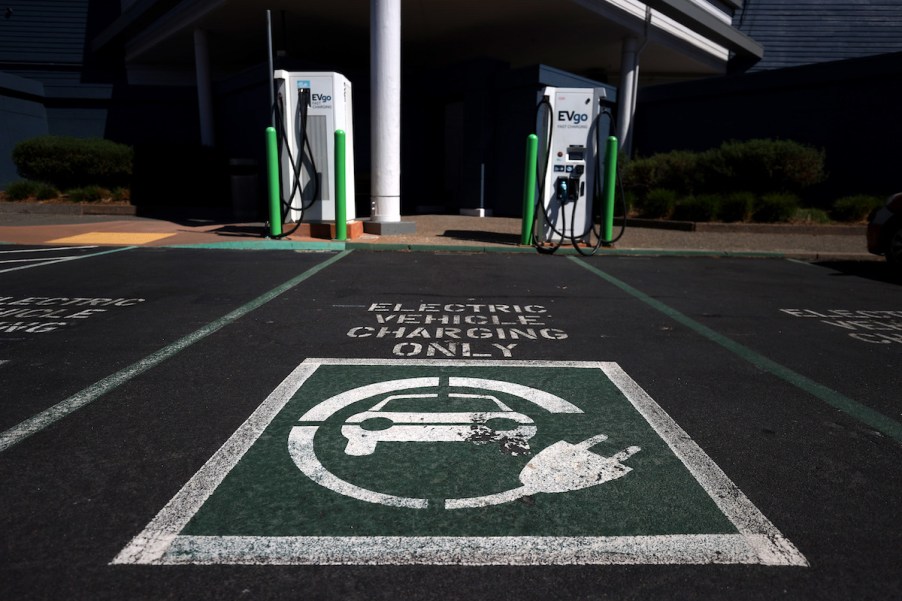
Dreams of More Affordable Electric Cars Can Be Killed by 1 Factor
Electric vehicles aren’t on everyone’s wish list this coming year, and that has a lot to do with the cost. Experts have been assuring us that prices would go down as building EV batteries became more efficient, however, and that seemed to hold true. Now, costs are actually going up, and many wonder how this will affect the future of affordable electric cars.

When it comes to electric car prices, it’s all about the batteries
One of the most expensive components of building an EV is the lithium-ion battery. It’s one of the major factors that is preventing many automakers from making a truly affordable electric vehicle. Recent years have proven that manufacturers are finding new ways to make them cheaper without sacrificing quality.
The problem of the lithium-ion battery remains, however, because most are only expected to last about 10 years before they need to be replaced. These can prove to be very expensive, and that’s before you factor in the cost of labor.
Then there’s also the factor of how EV batteries will be disposed of going forward, as it’s not as simple as hauling them off to your local landfill, since these batteries are toxic to the environment.
It’s hoped that we’ll find a way to recycle used EV batteries in the future, but we’re not quite there yet. Now we’re facing the problem of lithium-ion battery costs increasing instead of decreasing as previously hoped.
The cost of manufacturing batteries for electric cars is on the rise
The reason EV batteries are becoming more expensive to make has to do with the supply cost. Many of the materials such as nickel, cobalt, and lithium are increasing at a rate which makes it hard to build batteries at a lower cost.
Autoblog recently reported,
“Falling lithium-ion battery prices have been one of the most consistent trends in the electric vehicle industry for the last decade. Prices dropped from well over $1,000 per kilowatt-hour in 2010 to $141 per kWh last year. The trend has ground to a halt this year, with BloombergNEF’s annual lithium-ion battery price survey showing a 7% increase in average pack prices in 2022 in real terms. This is the first increase in the history of the survey.”
There is also the problem of some older EVs which now need new batteries. This is something we all knew would happen, but it seemed like one of those things which are still years from taking place. This means there are many EV owners who jumped on the green wagon early and will now need to replace their lithium-ion batteries soon.
Are affordable electric cars just a distant dream?
This is the question facing many people who wish to buy an EV, but fear they can never afford one. While things will probably continue to get worse before they get better, EVs will likely become a type of vehicle that everyone can afford.
There are a lot of factors to take into consideration, such as the inevitable rise and fall of the market. Just as prices get higher, they will eventually sink lower.
The real question is how much money automakers are willing to invest in EVs when the cost of supplies is so high. Given that so many countries are pushing to go green, it’s only a matter of time before they find a way to make EVs available at a price everyone can afford.
Efforts are already being made, as some automakers are looking for materials to build batteries that aren’t so heavily reliant on cobalt, nickel, and lithium. After that, prices should come down, although there will always be luxury EVs that are out of the price range for many.


